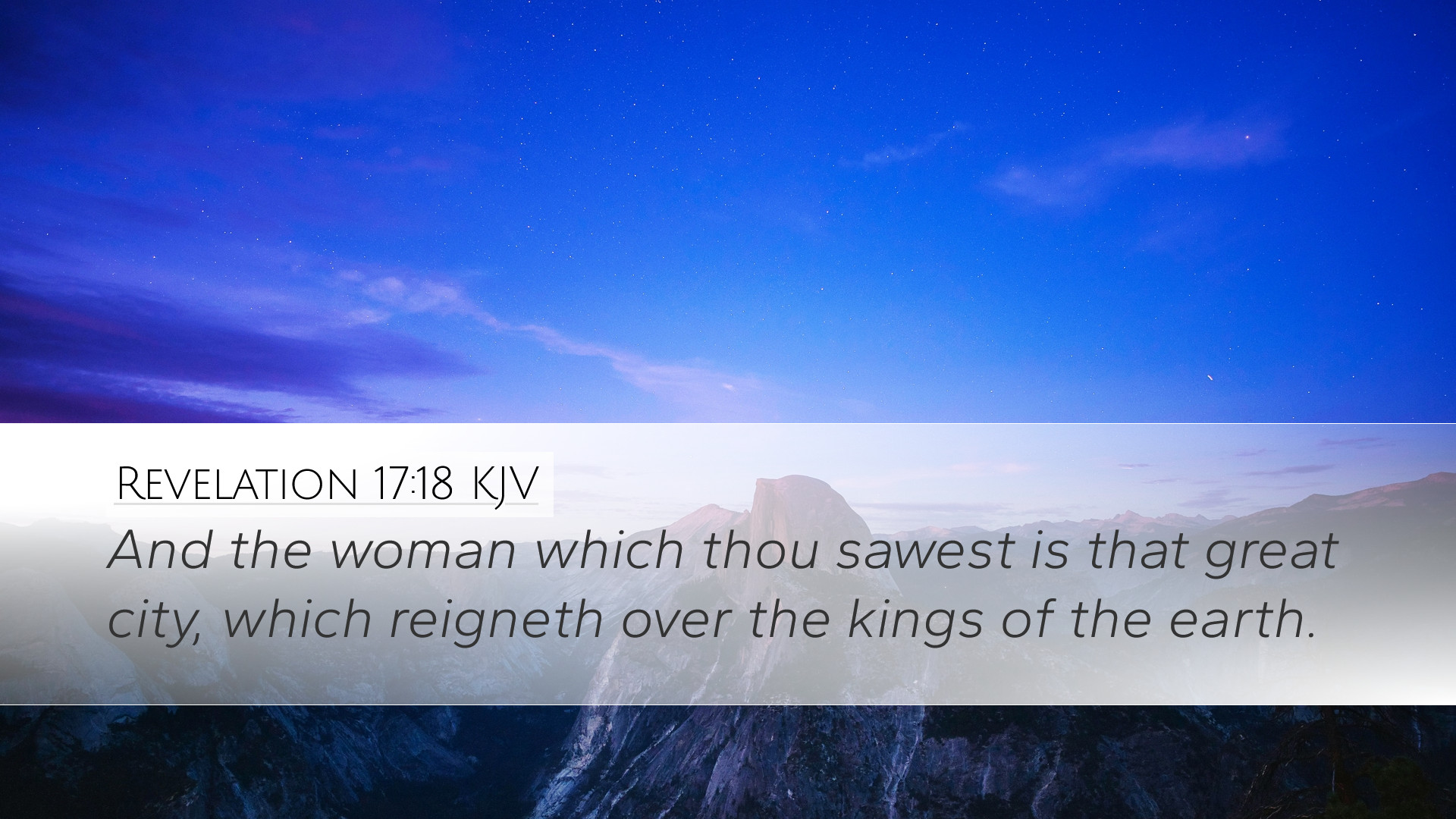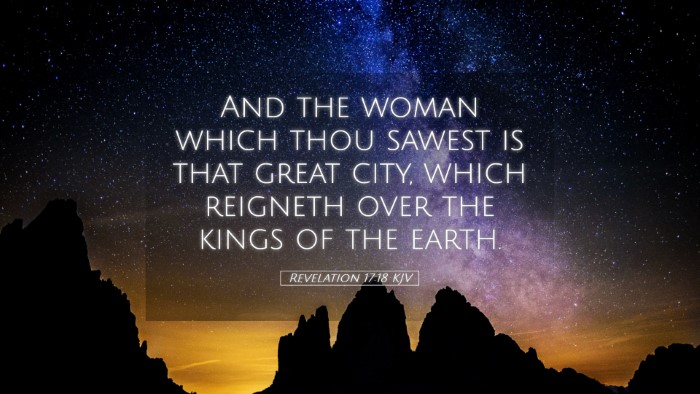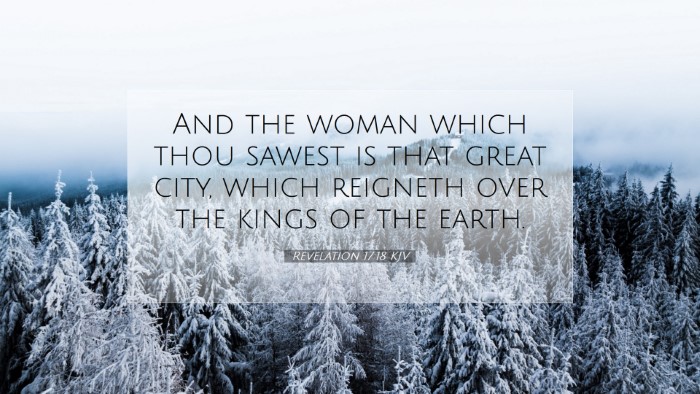Commentary on Revelation 17:18
Verse Text: "And the woman whom thou sawest is that great city, which reigneth over the kings of the earth."
Introduction
The verse Revelation 17:18 provides a pivotal insight into the symbolism surrounding the enigmatic figure of the woman, often interpreted as representing institutionalized forms of religion or a particular entity that wields extensive power over earthly kingdoms. Commentaries from Matthew Henry, Albert Barnes, and Adam Clarke offer a rich tapestry of interpretations that elucidate the significance of the imagery present in this verse.
Contextual Background
This chapter in Revelation presents a vivid portrayal of the judgment upon the great harlot who symbolizes a corrupt alliance between earthly powers and false religion. Understanding the context is crucial for grasping the implications of the city's representation as mentioned in 17:18.
Historical and Theological Implications
- Matthew Henry's Insights: Henry emphasizes the moral significance of the representation of the woman as a city, linking it to the societal and spiritual corruption that can take hold when powers coalesce. He asserts that this city stands as an entity that leads nations astray, epitomizing the blending of church and state contrary to biblical principles.
- Albert Barnes' Commentary: Barnes points out that the great city signifies not just Rome but potentially any world system that opposes Christ's sovereignty. He provides a historical analysis that can also encompass modern interpretations, warning about entities that sacrifice righteousness for power.
- Adam Clarke's Exposition: Clarke elaborates on the characteristics of this city, arguing that it is emblematic of the spiritual tyranny and corruption that can arise when true faith is replaced by human institutions. His comments remind readers that such a city may exist in various forms across different epochs.
Symbolic Interpretation of the Woman and the City
The symbolism of “the woman” is profound. In scriptural imagery, women often represent communities or nations, and in this context, she embodies an urban center characterized by both maritime trade and moral decay.
Characteristics of the City
- Power and Influence: The phrase “which reigneth over the kings of the earth” indicates a profound authority and influence the city possesses. This dominion is not merely political but extends into spiritual domains, highlighting an overarching control that affects all nations.
- Corrupt Alliances: Historical context leads to the understanding that this "great city" may represent a faction or amalgamation that betrays its divine purpose for earthly gain, which Adam Clarke firmly critiques as a corruption of the original intent of God’s church.
- Judgment and Consequences: As elaborated by Barnes, the city’s eventual judgment serves as a reminder of the truth that all earthly powers stand under divine scrutiny, reinforcing the sovereign authority of Christ over all kings and civic authorities.
Theological Reflections
In reflecting on this verse, it becomes evident that Revelation 17:18 serves as a clarion call to discern the nature of spiritual truths juxtaposed against human authority. The apostolic warning resounds that reliance on human constructs rather than God’s eternal truth precipitates moral failure.
Application for Pastors and Theologians
Understanding the essence of this text is critical for pastoral ministry and theological study. The implications are profound:
- Ethical Considerations: Pastors must lead congregations by ensuring that their mission aligns with God's kingdom rather than any earthly pursuit that distorts biblical mandates.
- Church-State Relations: The interplay between religion and political power presents continual challenges; thus, Clarke’s commentary urges leaders to maintain fidelity to the gospel amid cultural pressures.
- Warning Against Compromise: As Henry cautions, the blending of spiritual and political ambitions can lead to a dilution of faith, challenging ministers to maintain doctrinal integrity in the face of societal pressures.
Conclusion
Revelation 17:18 encapsulates the struggle between God’s kingdom and earthly systems of power. The woman, identified as a city, serves as a powerful warning against the seductions of political might that seeks to overshadow divine authority. The insights from Matthew Henry, Albert Barnes, and Adam Clarke not only enrich our understanding of this text but also compel us to a deeper commitment to righteousness in our spiritual and communal lives.
Final Thoughts
As we engage with this text, may we discern the nature of our own allegiances and the institutions we support. The challenge is clear: are we followers of the true King, or are we seduced by the great city's allure?


